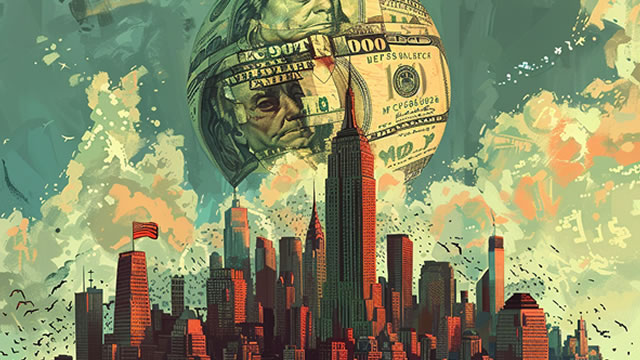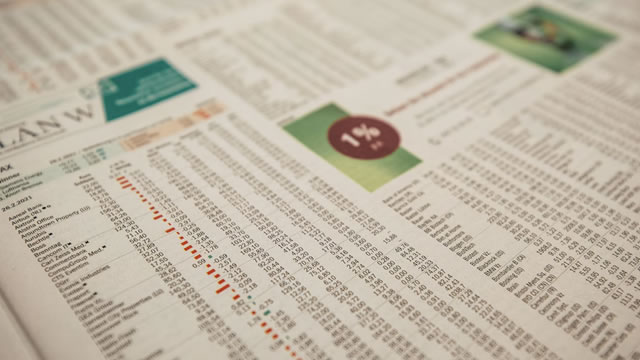Investors Brace for Impact: Trump’s Tariffs Spark Global Recession Fears
The financial markets have been thrown into turmoil following U.S. President Donald Trump’s announcement of hefty new tariffs on imported goods. This move, which marks a significant escalation in the ongoing trade war between the United States and its major trading partners, has left big investors reeling and scrambling to adapt.
The Aftermath of Trump’s Tariffs: What’s Next for Wall Street?
Wall Street stocks have taken a beating in the wake of the tariff announcement. The Dow Jones Industrial Average, for instance, recorded its largest single-day point decline in over 800 points, while the S&P 500 and the Nasdaq Composite also suffered significant losses. As uncertainty grows over the long-term economic implications of the tariffs, many investors are looking to diversify their portfolios.
Diversifying Away from the Dollar: A Time-Tested Recession Strategy
In times of economic instability, one strategy that investors often turn to is diversifying away from their home currency, in this case, the U.S. dollar. Historically, the greenback has tended to weaken during global recessions as investors seek safer havens for their capital. As a result, many are now considering investing in currencies such as the Swiss franc, the Japanese yen, and the gold standard, the golden hedge, the euro, and other commodities.
The Ripple Effect: How Trump’s Tariffs Will Impact the World
The impact of Trump’s tariffs is not limited to the United States. Many countries, particularly those heavily reliant on exports to the U.S., are bracing for a potential economic downturn. For instance, China, which is the world’s largest exporter, has already retaliated with tariffs of its own. Other countries, such as Germany and South Korea, are also expected to feel the brunt of the tariffs.
The Role of Central Banks: Mitigating the Impact of Trump’s Tariffs
Central banks around the world are closely monitoring the situation and are prepared to take action if necessary. For instance, the European Central Bank has stated that it stands ready to provide liquidity support to eurozone banks if needed. Similarly, the Bank of Japan has reaffirmed its commitment to maintaining its ultra-loose monetary policy.
Conclusion: Uncertainty and Volatility in the Markets
Trump’s new tariffs have added yet another layer of uncertainty to an already volatile financial market. With investors rushing to diversify their portfolios, it remains to be seen how long-lasting the impact of these tariffs will be. One thing is certain, however: the coming months are likely to be a rollercoaster ride for those invested in the stock market.
- Big investors are reacting to Trump’s tariffs by diversifying away from Wall Street stocks and the U.S. dollar.
- Historically, the U.S. dollar has tended to weaken during global recessions.
- The impact of the tariffs is not limited to the United States; many countries are bracing for potential economic downturns.
- Central banks are prepared to take action if necessary to mitigate the impact of the tariffs.
- The coming months are likely to be a rollercoaster ride for those invested in the stock market.





